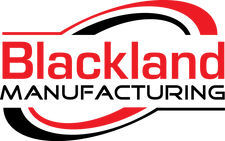Increasingly local and state governments are passing regulations that require newly
constructed public buildings, such as schools, hospitals and government services
facilities, to demonstrate measurable contributions toward energy conservation and
sustainability. The non-profit U.S. Green Building Council, best known for its
Leadership in Energy and Environmental Design (LEED) program, plays a central
role in establishing energy conservation guidelines through its suite of LEED
certification standards.
These LEED standards, first introduced in 1993, have gone through three major
revisions. They have also expanded into different market sectors. For example, in
the public building sector, U.S. Green Building Council has set comprehensive
standards for schools and universities (LEED for Schools) and for public health
hospitals and other related facilities (LEED for Healthcare). There are LEED rating
systems for new commercial construction, for home residential design and
construction as well as for existing buildings (LEED for Existing Buildings: Operations
& Maintenance).
Once you have determined which LEED standard will govern your project, you will
soon become very familiar with the 100 possible points, or credits, that can be
awarded to your project. Highly coveted Platinum level LEED-certified projects have
garnered at least 80 points, while the lower level Gold and Silver awards require
fewer points.
Achieving LEED certification is a complex project management task. An entire
consulting industry has arisen to support architects, planners, engineers and
construction companies navigate the very precise (some might say arcane) LEED
compliance standards. In fact, you may wish to turn to a LEED Accredited
Professional to help guide projects planning and decision-making in order to qualify
for as many as LEED credits as you can achieve.
Choosing Blackland resin countertops can help you obtain
LEED-certified status for your building project.
Sustainability is a key concept in the LEED certification process, so it’s very
important to perform very exact calculations on the percentage of recycled pre- and
post-consumer waste used in your project.
Blackland epoxy resin countertops are made with 10% recycled material content.
Thus specifying Blackland resin countertops in your construction plans can help you
achieve one LEED point (plus a possible second point for Exemplary Performance)
when calculating the MRc4 Recycled Content credit, which is offered in LEED for
New Construction, LEED for Core and Shell, LEED for commercial Interiors and LEED
for Schools.
Blackland Epoxy Resin countertops qualify for MRc5 Regional
Materials credits for much of the central U.S.
Just as those advocates of the slow food movement advocate buying products from
local farmers to support local agriculture while reducing the environmental impact of
expending energy on long distance transportation, the LEED certification process
has a similar incentive: the MRc5 Regional Materials credit, which is worth an
additional 1 point (with the potential for additional points awarded for Exemplary
Performance).
The MRc5 Regional Materials credit was originally awarded to materials sourced
within 500 miles. And thanks to Blackland Manufacturing’s central Texas location,
this credit could be awarded to projects across Texas, Oklahoma and as far east as
New Orleans.
In 2012, an alternate pro-rated "Option 2" calculation became available that
extended this distance to 1,500 miles if shipment is made by rail. This broadens the
opportunity for projects located across much of the central United States.
Phenolic Compact Countertops from Blackland Manufacturing
use raw materials from natural resources that renew rapidly
(within 10 years).
The LEED certification process also takes a look at the impact of raw material
sources on the planet's environment. The MRc6 credit, which applies to LEED for
New Construction, LEED for Commercial Interiors and LEED for Schools among
others, encourages selection of raw materials from natural sources that can be
renewed within a 10 year life cycle. Phenolic Compact countertops from Blackland
Manufacturing are made of rapidly renewable resources, which can help you achieve
this important MRc6 credit.
Blackland Manufacturing's Science Tables utilize wood certified
by the Forest Stewardship Council.
Sustainable forestry management is another important goal of the LEED certification
process. Projects that use wood products in their construction can achieve one
credit in the MRc7 Certified Wood category if at least 50% of the wood is qualified
under the Forest Stewardship Council (FSC) threshold. A second additional point for
exemplary performance can be awarded if the percentage exceeds 95%.
All wood science tables offered by Blackland Manufacturing utilize FSC Certified
Wood, so specifying Blackland science tables for your project can help contribute
toward the achievement of the MRc7 credit.
Blackland products are Greenguard Indoor Air Quality Certified,
which can help you achieve LEED IEQc4.5 credits.
Many LEED guidelines go far beyond a building's initial construction. For example,
the IEQc4.5 requirements cover the choice of furniture and furnishings. In this case,
the underlying purpose of this LEED credit is to improve indoor air quality by
reducing chemical contaminants introduced by materials in the buildings furniture
and furnishings. There are two options for achieving the IEQc4.5 credit for low
emitting materials in furniture and seating systems. The first choice is to select
furniture and seating that is Greenguard Indoor Air Quality certified.
This is the route we recommend you take, because when you choose Blackland
Manufacturing's epoxy resin countertops (or any of our other Blackland line of
products) they have already been Greenguard Indoor Air Quality certified.
The second route for achieving IEQc4.5 credits is to enlist an independent third-
party air-quality testing laboratory that can certify that the emissions from your
furniture do not exceed the prescribed LEED emission limits.
Want to learn more about how Blackland epoxy resin
countertops can help you obtain LEED credits?
It's easy. You can contact us by telephone at (512) 366-8139 or drop us a note on
our contact form. Our consultants have over 20 years of experience and will be
happy to answer any questions you have about your project's requirements.
Or if you already have a specific project in mind, use our online quote request tool.
Either way we look forward to answering your questions and providing you with the
highest quality laboratory work surface products available.
